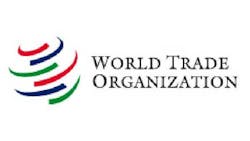World Trade Organization to Examine Trade Complaints Against Argentina by US, EU and Japan
The World Trade Organization on Monday established a dispute resolution panel to probe allegations of unfair trade practices lodged against Argentina by the United States, the EU and Japan.
It also created a panel to look into Argentina's claim that the United States has imposed unfair barriers to its meat exports.
In the first case, the three complainants have attacked Argentina's import licensing rules, which among other things require firms eager to export goods to the country to import Argentinian goods in exchange.
One of the most well-known examples is that of German car maker Porsche, which was forced to commit to purchasing Argentinian wine and olive oil in order to get approximately 100 of its cars into the country.
Canadian mobile phone maker Research in Motion (IW 1000/240), which makes the Blackberry, meanwhile was forced to open a production unit in southern Argentina in order to continue selling its phones.
On Monday, Argentina told the WTO's Dispute Settlement Board that it had taken measures since Jan. 25 to calm the tensions, stressing that it had repealed "all non-automatic import licenses."
The complainants however told the board they were "not convinced" by the measures taken by Argentina, a source close to the matter said.
The WTO's dispute settlement board also established a second panel Monday to look into Argentina's claims that Washington has blocked meat imports.
Buenos Aires has accused the United States of imposing measures over the past 11 years that have in effect closed off the U.S. market to Argentinian beef.
Argentina has also criticized the U.S. for not recognizing that the Patagonia region is free of the foot and mouth disease, despite a clean bill of health from the World Organization for Animal Health.
The United States, meanwhile, insisted Monday that it was fully compliant with its obligations under the WTO agreements, but said U.S. authorities were in the process of evaluating sanitary issues related to Argentinian products.
According to WTO rules, the panels each have up to six months to report their findings.
Copyright Agence France-Presse, 2013
About the Author
Agence France-Presse
Copyright Agence France-Presse, 2002-2025. AFP text, photos, graphics and logos shall not be reproduced, published, broadcast, rewritten for broadcast or publication or redistributed directly or indirectly in any medium. AFP shall not be held liable for any delays, inaccuracies, errors or omissions in any AFP content, or for any actions taken in consequence.
